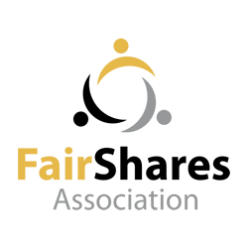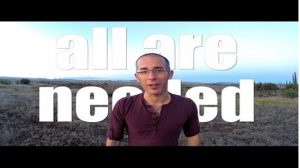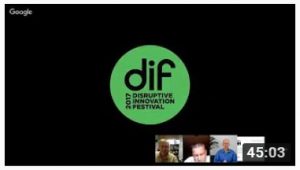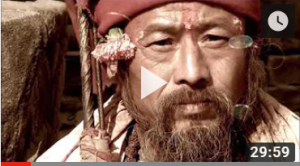Looking at social enterprise through a FairShares lens…
This page contains a small selection of useful video resources to help you communicate the need for, and value of, the FairShares Model. We have divided them into beginner, intermediate and advanced sections.
Quick Start
1. From Mass Mosaic to AnyShare Society (2 mins)
The evolution of modern corporations (Language: English)
In this video, Rob Jameson who was co-founder of the world’s first internet FairShares Company (anyshare.coop) – explains why he and Eric Doriean adopted the FairShares Model when they attempted to convert Mass Mosaic to AnyShare Society (no longer trading).
2. Co-operative Exchange (1 min)
Lam creates a FairShares Worker Co-operative (Language: English)
In this third video, Lam and her friends end their own exploitation by setting up a FairShares Worker Co-operative. They use Co-op Exchange to find 5,000 investors, open a factory and make a surplus. The surpluses are distributed according to FairShares principles to ensure that the 1% cannot gain control of their enterprise or extract a disproportionate share of the wealth created.
Intermediate
1. Why do we need a FairShares Model at all? (20 mins)
https://www.youtube.com/watch?v=k0-K5gKorZ4
Graham Boyd repeats his talk to the Royal Society for Arts (RSA) in April 2020 on the need for a FairShares Commons. Using the metaphor of apartheid (applied to business), Graham articulates the deep divisions that our current approach to business cannot overcome. The combination of the Adaptive Way and FairShares Commons are needed to create generative businesses that take seriously the to distribute wealth and power to all contributors of capital (whether in the form of human, social, natural, manufacturer, intellectual or financial).
2. Redesigning the Economy with Free (FairShares) Companies – Graham Boyd (45 mins)
Redesigning the Economy with Free Companies That Cannot Be Bought or Sold (Language: English)
In this video, Graham Boyd – the founder of FairShares company EvoluteSix Ltd – explains how to redesign organisations and the economy to fully develop people. To help his argument, he interviews Jack Reardon, Rory Ridley-Duff and Henry Leveson-Gower. They discuss problems in the way existing companies are designed, and propose how to redesign them using FairShares principles.
Advanced
1. 2018 ‘Train the Trainer’ Video for FairShares Labs, created by the FairShares Institute (30 mins)
The Relevance of FairShares (Language: English)
In this video for Day 2 of the FairShares Labs ‘Train the Trainer Course’, Prof Rory Ridley-Duff explains the relevance of the FairShares Model. Cooperative models of social enterprise effectively counter widening inequalities in society and ‘The 1% Problem’. Using numerous examples of FairShares early adopters (AnyShare, Evolutesix, Co-op Exchange, LocoSoco, Human Needs Project and Resonate) Prof Ridley-Duff shows how FairShares is a vehicle that contributes to sustainable development, and can help the UN initiative to eradicate poverty by 2030.
2. EMES International Research Conference – Keynote (21 mins)
In this keynote to the Opening Plenary of the 2019 EMES International Research Conference on social enterprise, Prof Rory Ridley-Duff explains ‘six forms of wealth’ that provides lens to evaluating and understanding the value creation of social enterprises. Using the case study of Resonate Co-operative Ltd, he shows how the application of the FairShares Model to create co-operative social enterprises increases alignment with sustainable development, and addresses poverty and inequality across society.
Wealth, Social Enterprise and the FairShares Model (Language, English – with subtitles)




